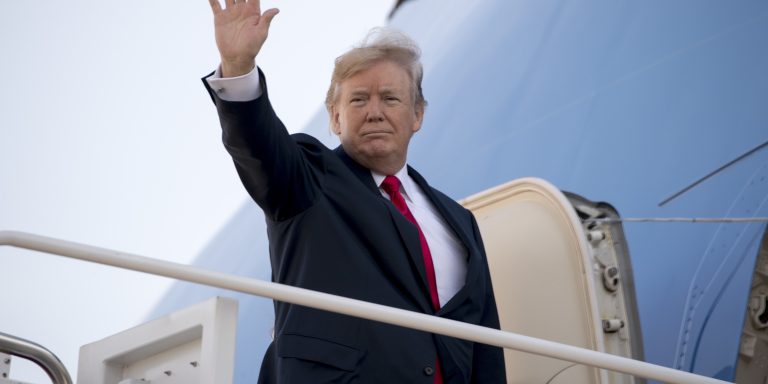INTELBRIEF
November 3, 2017
TSC IntelBrief: The Rift Between the U.S. and Europe on Iran

• U.S. relations with Europe are strained over the Trump Administration’s threat to withdraw from the 2015 nuclear agreement with Iran.
• European officials insist the accord is succeeding, with Iran in compliance, and that broad, adverse consequences would follow if the deal were to collapse.
• To avoid an open rift with the Trump Administration, European officials are trying to accommodate its concerns by offering to negotiate new curbs on Iran’s ballistic missile program and support for militant groups.
• As a means of asserting its position, the EU is threatening to shield its companies, should the U.S. re-impose secondary sanctions on Iran.
The Trump Administration’s threats to withdraw from the 2015 nuclear agreement with Iran, unless the deal’s omissions are addressed, have strained Washington’s relations with Europe. Britain, France, and Germany (along with the U.S., Russia and China) forged the Joint Comprehensive Plan of Action (JCPOA) with Iran, and have a significant stake in its continuation. The three European powers, along with the broader European Union (EU), have strongly urged the Trump Administration to stay in the accord, on the grounds that it is accomplishing its core objective of preventing Iran from obtaining a nuclear weapon. European officials have adopted a position similar to that of the Obama Administration when it negotiated the JCPOA – that its failure to contain Iran’s regional influence and ballistic missile program can be addressed separately and more easily while the agreement is in effect, than if it collapses and Iran becomes a nuclear power. European leaders have argued that allowing the JCPOA to collapse would not only free Iran from the constraints on its nuclear program, but would also harm collective efforts to draw North Korea into a similar nuclear agreement. In the European view, a dissolution of the JCPOA would also increase the potential for direct conflict in key regional waterways and elsewhere in the region, with both Iran and its allies and proxies in Syria, Iraq, Lebanon, and Yemen.
Europe is trying to avoid an open breach with the United States by firmly stating its disagreement with the Trump Administration’s position while expressing willingness to try and accommodate at least some Administration demands. In his October 13 announcement of a new Iran strategy, President Trump demanded that Congress and the European countries address the JCPOA’s deficiencies through legislation and new negotiations with Tehran. European officials, including senior officeholders from Britain, France, and Germany, reacted to the announcement by pledging to work with Washington to achieve new, binding limits to Iran’s ballistic missile program and support for terrorist groups. Most experts believe the most realistic basis for opening negotiations with Iran would be to work to achieve a binding prohibition on Tehran’s development of an Intercontinental Ballistic Missile (ICBM) – defined as a missile with a range of at least 3,000 miles. Iranian leaders apparently accept that an ICBM would be viewed as an offensive weapon that lacks a clear defense rationale or international legal justification. Its possible Iran might agree to negotiate an ICBM ban, as it currently does not possess such weapons, and would not be required to dismantle a system it has already developed. Iran is unlikely to negotiate on its support for terrorist groups because Iran does not accept the U.S. or European premise that the armed factions it backs are committing ‘terrorism.' No past U.S. or international strategy to force Iran to cut ties to regional armed factions has succeeded, and President Trump did not articulate any specific new initiatives to do so in his October 13 strategy announcement.
Should the Administration withdraw from the JCPOA and re-impose secondary sanctions, the EU is threatening trade consequences in return. The European threats appear intended to pressure the Trump Administration to stay in the JCPOA, as well as protect European corporate investment. Since U.S. and EU sanctions were eased in January 2016, the EU has resumed importing oil and gas from Iran, and total EU imports from Iran have nearly recovered to pre-sanctions (pre-2011) levels. Iranian banks have also been reintegrated into the international banking system, including through the use of EU-based electronic payments systems. Meanwhile, several large European firms have announced significant investments in joint ventures with Iran, particularly in the country’s burgeoning automobile production sector. Should the U.S. withdraw, the EU could use a 1996 so-called ‘blocking regulation’ that would, among other provisions, entitle EU firms to recover damages incurred as a result of non-compliance with U.S. sanctions. Alternatively, the EU could initiate a dispute with the United States under procedures of the World Trade Organization (WTO) to challenge provisions of U.S. sanctions. Regardless of the counter-measures that may be imposed, EU-based firms remain independent actors that will decide whether to continue to do business in Iran based on their own assessments of risks to their businesses and reputations. If the U.S. brings back secondary sanctions, it’s likely most EU-based firms will opt out of Iran. Should that exodus occur, it is certain to further aggravate the tensions between the U.S. and European governments on the Iran issue.
.
For tailored research and analysis, please contact: info@thesoufancenter.org
.
.